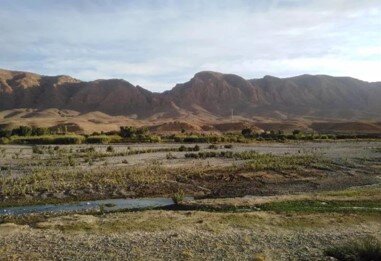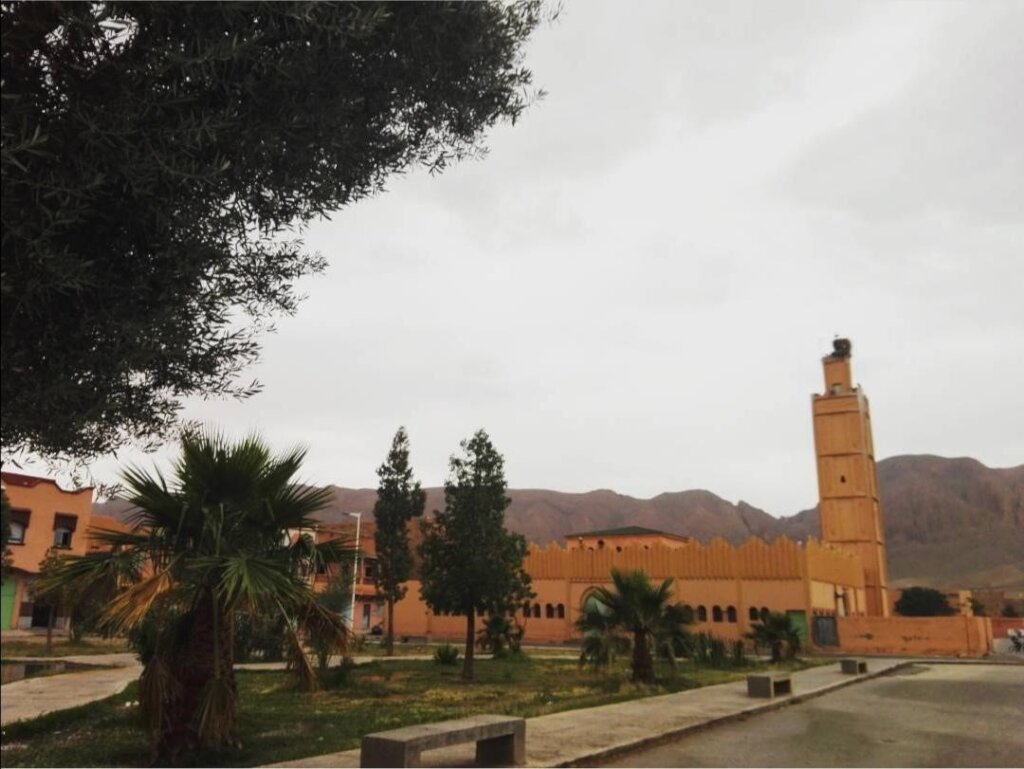By Amal Mansouri | HAF Field Coordinator, REMA Program
Being and feeling rich in my beautiful small city, Er-rich, is not a challenge. In fact, it’sincredibly easy. You just have to live there and you’ll understand. With that being said, a lot of people would be wondering how this is even possible. Is it easy to make a lot of money there? Was it called Er-rich because people there are actually known for their wealthiness? The answer to both of these questions is: No. This is because we’re not talking about money. There is no magical spell in the city that could make you millions of dirhams by the snap of a finger. That is not the type of richness that I am talking about. Richness in Er-rich manifests in its nature, history, diversity, multiculturalism, interfaith, inclusiveness and heritage.
Given where Er-rich issituated, in the crossroads that lead to Meknes, Tafilalet, Tinghir, and Imilchil, it is a place where people from different cultural backgrounds, races, and ethnic and religious groups immigrated and lived together in peace and synergy. This diversity of lifestyles, languages, and practices is what historically formed the identity of Er-rich's society and made it inclusive and welcoming rather than exclusive. Living and growing up in such an environment made me realize that people are born different, and with that difference came acceptance and open-mindedness there. Coming from different tribes and cultures, having different religions or speaking different languages doesn’t have to be a barrier leading to an end. It should be more of a start. A start to learn from each other. A start to understand and value each other’s input. A start to find common ground, live in harmony, and help each other to protect and maintain our heritage.
I am from an Amazighi family that speaks both Moroccan Darija and Tamazight. I was raised in a neighborhood where we had not only Amazighi and Arab neighbors that came from different origins in Morocco but also foreign neighbors that had different nationalities. At the intersection of these various cultural, ethnic, and religious backgrounds, there was respect and appreciation. As an example, my mom used to tell me stories about teaching her American friend Susanne how to make bread and traditional Moroccan dishes, and how Susanne was trying to help my mom with housework, and following her instructions when she was sick. They shared countless moments full of laughter and humor. And even more, Susanne kept in touch with my mom after she left Morocco, sending my family cards, especially on birthdays and Eids, although she was Christian, not Muslim. Stories like that made me appreciate the beauty and the warmth that comes along with concepts like interculturalism. Looking at it now, my mom and Susanne didn’t have much in common on paper: my mom is Moroccan, and Susanne is American. My mom is illiterate, and Susanne is educated. My mom speaks Tamazight and Moroccan Darija, and Susanne speaks English. But none of this prevented them from developing a very real and deep friendship. It is extraordinary how differences can bring people closer and not divide them. This was my introduction to a diverse, interfaith world of coexistence.
Accordingly, as I grew up, I became more passionate about learning new languages and being exposed to different cultures. This passion made me understand that just because someone is different from me or seemingly shares no similarities in identity, it doesn’t mean that one of us is right and the other is wrong. Hence, when I read about the High Atlas Foundation (HAF), and the USAID Religious and Ethnic Minorities Activity (REMA), I immediately wanted to learn more. I thought of my mom and her friend Susanne, and how important and worth documenting and preserving their story is. Such stories are how we can remind ourselves and future generations that diversity is a privilege, not an obstacle.
The REMA program and team are working hard to achieve that goal in immortalizing and sharing stories that need to be remembered. As someone who recently joined the REMA team as a Field Coordinator, I am eager to unveil, record, and preserve the hidden stories of previous generations and take action to make them a permanent memory that could help us evolve and take advantage of our diversity to achieve unity.
By Sarah Whiteside | HAF-UVA Intern
By Hanna Hassan | HAF-UVA Intern
Project reports on GlobalGiving are posted directly to globalgiving.org by Project Leaders as they are completed, generally every 3-4 months. To protect the integrity of these documents, GlobalGiving does not alter them; therefore you may find some language or formatting issues.
If you donate to this project or have donated to this project, you can recieve an email when this project posts a report. You can also subscribe for reports without donating.
Support this important cause by creating a personalized fundraising page.
Start a Fundraiser
